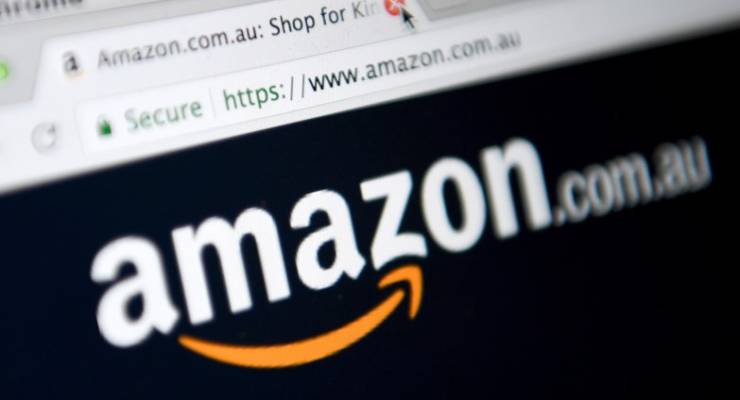
Amazon’s decision to block Australian consumers from its main site, refuse to ship to Australia and force us to use a pitiful local site is an act of contempt by a global tech giant that can do what it likes, confident in its remarkable sharemarket position. But it’s also on Australia’s governing class and gouging retail oligopolists who prompted it.
The new GST arrangements on foreign purchases, commencing in a month’s time, are bipartisan and the result of pleading by special interests — local retailer oligopolies who hate the idea of Australians being able to avoid the outrageous mark-ups they slap on products that are available overseas, and state governments who saw an opportunity to suck more from the community via the GST.
The arguments that this is about a “level playing field” — long peddled by the retail oligopoly and politicians — or about multinational tax evasion — a line pushed by Scott Morrison — are rubbish. The Australian government has no more fiscal claim to what Australians spend overseas online than it does to what they spend overseas when they travel. And it’s not Amazon — which is indeed a vast international tax dodger — that is not paying GST, it’s consumers. The government wants Amazon to collect the tax from Australians, not pay the tax itself.
The result is an amalgam of everything wrong with our political and economic environment, albeit in a kind of #fistworldproblems way. The sordid way special interests and high-profile business people like Gerry Harvey influence government policy at the expense of consumers. The way governments conspire to punish consumers. And the visible contempt of a multinational tech company for consumers.
What to do? From July 1, Australians can shop internationally at Amazon if they’re prepared to pay more to have US shipper collect and forward on their physical products. Choice has a recent guide to those companies here.
The additional cost, however, might be enough to render offshore purchases uneconomic compared to local mark-ups. And accessing Amazon’s international site will only be possible if you have a Virtual Private Network to mask your Australian IP address (you should have one of those no matter what you do online).
Crikey provided a guide to VPNs three years ago, and other sites have provided updated guides — the rule of thumb is to just not use free VPNs, they’re worth what you pay for them.








Actually, Amazon is being asked to collect a 10% tax on certain sales to Australians. The Australian purchasers are being taxed, not Amazon (who I’m sure will just charge 10% on sales through their Australian store…).
… so I’m sure this decision by Amazon is really about forcing traffic to the Amazon AU store. Many Amazon US store sellers have never shipped to Australia anyway, even for small purchases.
Virtually the only thing I buy from Amazon are eBooks. I haven’t bothered transferring to the Amazon.com.au website preferring to stay with the Amazon.com one. The Amazon.com site manages to charge the GST, no problems, so that’s not the explanation.
I’m not certain whether having a VPN would work. Amazon can identify where the credit card is registered (unless you go to the bother of sending yourself a gift card to put the account in credit, and using that to pay for purchases).
Ditto.
About a year ago I was after some wine glass storage cases. The same item in the US store was about $40, but in Aus store $125. Ended up buying similar from Asia for $22. (couldn’t find an Aus manufacturer)
I believe we should pay gst on imported stuff as this is the only way we can now gather in the taxes we need to pay for roads, schools and all other infrastructure. Importers pay 10% Tax when bringing in materials and stock (including everything from cosmetic, technology to building materials) through customs, I cannot see why internet consumers should be exempt. I certainly cannot see why Amazon would object.
When we export goods to other countries purchasers have to pay tax in their countries …
It’s all done at the docks so maybe this should be a shipping issue ..
But I reacall Amazon have opened warehouses in Australia .. so that makes them as local as Bunnings …
Hmmm. Almost stupid enough for Hanson ….
Quick everyone! Run! Hide! She’s here!!!!
No DH the name is common … I run a construction company and sell across the world From China … I love this country and everything it gives me FREE like health care, motorways and roads, police force, armed forces, parks …
Not sure we will retain these if your attitude makes up the majority of opinions.
The only way these goodies would be free is if you don’t pay tax.
It wasn’t the P-word but your inane views that suggest a PHON clone.
Pauline’s viewpoint is valid, and the jibe at her name a cheap shot. It is not inane to want to pay ones fair share of tax, it is laudable.
Pfff. It can be defeated in 5 seconds with the use of a gift card sent to yourself, a second account, a VPN and a reshipping service. Been doing it for years.
And my Kindle’s registered US address is 1600 Pennsylvania Ave. Their system swallowed it without complaint.
Thanks for sharing … it’s a new mind set petty cheating, popular with software and video thieves, hackers and anybody else who wants everything for nothing … but come on help out your country …
This is the most Square comment I’ve ever seen on this site.
Sorry Bernard I don’t see why offshore corporations should be able to sell GST-free to Australians when Australian companies can’t.